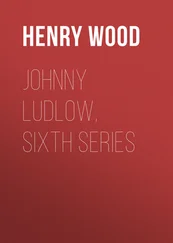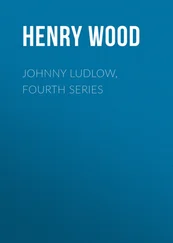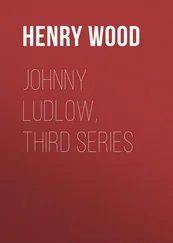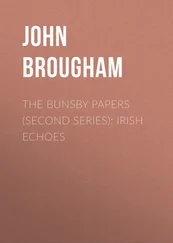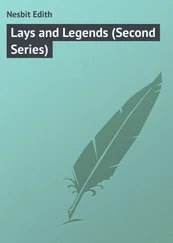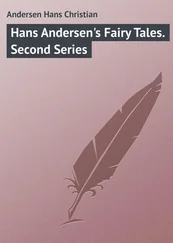Henry Wood - Johnny Ludlow, Second Series
Здесь есть возможность читать онлайн «Henry Wood - Johnny Ludlow, Second Series» — ознакомительный отрывок электронной книги совершенно бесплатно, а после прочтения отрывка купить полную версию. В некоторых случаях можно слушать аудио, скачать через торрент в формате fb2 и присутствует краткое содержание. Жанр: foreign_prose, literature_19, foreign_antique, на английском языке. Описание произведения, (предисловие) а так же отзывы посетителей доступны на портале библиотеки ЛибКат.
- Название:Johnny Ludlow, Second Series
- Автор:
- Жанр:
- Год:неизвестен
- ISBN:нет данных
- Рейтинг книги:3 / 5. Голосов: 1
-
Избранное:Добавить в избранное
- Отзывы:
-
Ваша оценка:
- 60
- 1
- 2
- 3
- 4
- 5
Johnny Ludlow, Second Series: краткое содержание, описание и аннотация
Предлагаем к чтению аннотацию, описание, краткое содержание или предисловие (зависит от того, что написал сам автор книги «Johnny Ludlow, Second Series»). Если вы не нашли необходимую информацию о книге — напишите в комментариях, мы постараемся отыскать её.
Johnny Ludlow, Second Series — читать онлайн ознакомительный отрывок
Ниже представлен текст книги, разбитый по страницам. Система сохранения места последней прочитанной страницы, позволяет с удобством читать онлайн бесплатно книгу «Johnny Ludlow, Second Series», без необходимости каждый раз заново искать на чём Вы остановились. Поставьте закладку, и сможете в любой момент перейти на страницу, на которой закончили чтение.
Интервал:
Закладка:
“The poor girl has lain like a weight upon my mind, since the time when we abandoned her in London,” confessed Lucy.
“Why did you abandon her?”
“It was not my fault,” murmured Lucy; and Robert felt vexed to have asked the hasty question. “I hoped she went home, as I desired her; but I did not feel sure of it, for Clara was thoughtless. And those unsuspicious country girls cannot take care of themselves too well. Robert, whatever has happened I regard as our fault,” she added, looking up at him with some fever in her eyes.
“As Mr. Bird’s fault; not yours,” corrected Robert—who, strange perhaps to say, observed courtesy of speech towards Bird when talking with Lucy: giving him in general a handle to his name. It might have sounded ironical, but that he couldn’t help. “Did you never write to ascertain what had become of her, Lucy?”
“My husband would not let me. He is often in difficulties: and we never have a settled home, or address. What will be done with her, Robert?”
“She will stay where she is until she is strong; Jane wishes it; and then we shall see about the future. Something will turn up for her in some place or other, I’ve little doubt.”
Jane glanced at her husband and smiled. Robert had given her a promise to help the girl to an honest living. But, as he frankly told his wife, had he known it was a sister of Bird’s, he might never have done so.
“About yourself, Lucy; that may be the better theme to talk of just now,” he resumed. “Will you remain here for good in your old home?”
The hot tears rushed to her eyes, the hot flush to her cheeks. She looked deprecatingly at both, as if craving pardon.
“I cannot. You know I cannot.”
“Shall I tell you what Bird is, Lucy? And what he most likely will be?”
“To what end, Robert?” she faintly asked. “I know it without.”
“Then you ought to leave him—for your own sake. Leave him before you are compelled to do so.”
“Not before, Robert.”
“But why?”
“Oh, Robert, don’t you see?” she answered, breaking down. “He is my husband.”
And nothing else could they get from her. Though she cried and sobbed, and did not deny that her life was a fear and a misery, yet she would go back to him; go back on the morrow; it was her duty. In the moment’s anger Robert Ashton said he would wash his hands of her as well as of Bird. But Jane and Lucy knew better.
“What can have induced you and Robert to take up this poor Clara in the way you are doing—and mean to do?” she asked when she was alone with Jane at the close of the evening.
“I—owe a debt of gratitude; and I thought I could best pay it in this way,” was Mrs. Ashton’s timid and rather unwilling answer.
“A debt of gratitude! To Clara?”
“No. To Heaven.”
VII.
CHARLES VAN RHEYN
I shall always say it was a singular thing that I should chance to go back to school that time the day before the quarter opened. Singular, because I heard and saw more of the boy I am going to tell of than I otherwise might have heard and seen. I was present at his arrival; and I was present at his—well, let us say, at his departure.
The midsummer holidays were nearly up when Hugh was taken ill. Duffham was uncertain what the illness was going to be: so he pitched upon scarlatina. Upon that, the Squire and Mrs. Todhetley packed me back to school there and then. Not from any fear of my taking it; I had had it, and Tod too (and both of us were well again, I recollect, within a week or so); but if once the disease had really shown itself, Dr. Frost would not have liked us to return lest we might convey it to the school. Tod was in Gloucestershire. He was written to, and told not to return home, but to go straight to school.
Dr. Frost was surprised to see me. He said my coming back was quite right; and I am sure he tried to put me at ease and make me comfortable. Not a single boy had stayed the holidays that summer, and the doctor and I were alone. The school would open the following day, when masters and boys were alike expected to return. I had dinner with the doctor—he usually dined late during the holidays—and we played at chess afterwards.
Breakfast was just over the next morning when the letters came in. Amongst them was one from France, bearing the Rouen post-mark. Now the doctor, learned man though he was in classics and what not, could make nothing of French. Carrying the letter to the window, turning its pages over and back again, and staring at it through his spectacles, he at last brought it to me.
“You are a pretty good French scholar, Johnny; can you read this? I can’t, I confess. But the paper’s so thin, and the ink so pale, and the writing so small, I could scarcely see it if it were English.”
And I had to go over it twice before I could make it out. As he said, the ink was pale, and it was a frightfully small and cramped handwriting. The letter was dated Rouen, and was signed curtly, “Van Rheyn,” French fashion, without the writer’s Christian name. Monsieur Van Rheyn wrote to say that he was about to consign his son, Charles Aberleigh Van Rheyn, to Dr. Frost’s care, and that he would arrive quickly after the letter, having already departed on his journey under the charge of a “gentilhomme Anglais.” It added that the son would bring credentials with him; that he spoke English, and was of partly English descent, through his mother, the late Madame Van Rheyn, née Aberleigh.
“Rather a summary way of consigning a pupil to my charge,” remarked Dr. Frost. “Aberleigh?—Aberleigh?” he continued, as if trying to recollect something, and bending his spectacles over the letter. “She must have been one of the Aberleighs of Upton, I should think. Perhaps Hall knows? I have heard her mention the Aberleighs.”
Ringing the bell, the housekeeper was sent for. Dr. Frost asked her what she knew of the Aberleighs of Upton.
“There’s none of them left now to know, sir,” answered Hall. “There never was but two—after the old mother died: Miss Aberleigh and Miss Emma Aberleigh. Good fortunes the young ladies had, sir, and both of them, I remember, married on the same day. Miss Aberleigh to Captain Scott, and Miss Emma to a French gentleman, Mosseer Van Rheyn.”
“I should think, by the name, he was Dutch—or Flemish; not French,” remarked the doctor.
“Anyway, sir, he was said to be French,” returned Hall. “A dark sallow gentleman who wore a braided coat. The young ladies never came back to their home after the wedding-day, and the place was sold. Captain Scott sailed with his wife for Injee, and Mosseer Van Rheyn took Miss Emma off to his house in France.”
“Do you recollect where his home was? In what part of France?”
“No, sir. And if I did, I should never be able to speak the name. Not long ago I heard it said that poor Miss Emma was dead—Mrs. Van Rheyn that is. A nice quiet girl, she was.”
“Then I conclude the new pupil spoken of to me, must be the son of Monsieur Van Rheyn and Miss Emma Aberleigh,” remarked the doctor, when Hall was dismissed. “You must help to make things pleasant for him, Johnny: it will be a change at first from his own home and country. Do you remember that other French boy we had here?”
I did. And the remembrance made me laugh. He used to lament every day that he had not a plate of soup for dinner, and to say the meat was tough.
Strolling out at the front iron gates in the course of the morning, wondering how long the boys were going to be before some of them put in an appearance, I caught sight of the first. He was walking up from the Plough and Harrow Inn, and must have come by the omnibus that plied backwards and forwards between the inn and the station. The Plough and Harrow man-of-all-work followed behind, carrying a large trunk.
Читать дальшеИнтервал:
Закладка:
Похожие книги на «Johnny Ludlow, Second Series»
Представляем Вашему вниманию похожие книги на «Johnny Ludlow, Second Series» списком для выбора. Мы отобрали схожую по названию и смыслу литературу в надежде предоставить читателям больше вариантов отыскать новые, интересные, ещё непрочитанные произведения.
Обсуждение, отзывы о книге «Johnny Ludlow, Second Series» и просто собственные мнения читателей. Оставьте ваши комментарии, напишите, что Вы думаете о произведении, его смысле или главных героях. Укажите что конкретно понравилось, а что нет, и почему Вы так считаете.


